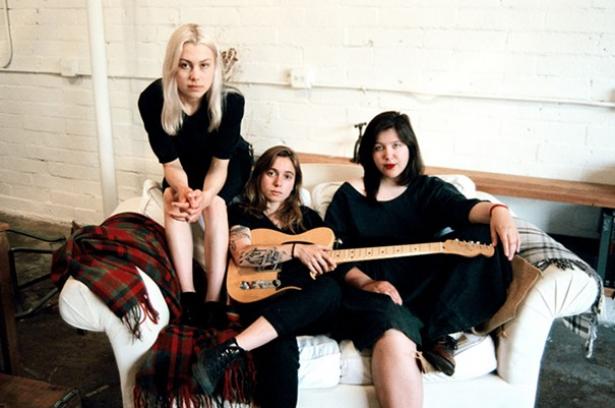A newly released report by the World Economic Forum has declared that the gender gap is finally closing. At the current rate, it predicted, women and men will be earning equal pay not far into the 23rd century.
It would be nice to imagine that the music business is well ahead of this corporate curve, but reality suggests otherwise. At the European Parliament in Brussels last month, an international advocacy group called Keychain issued a “manifesto” pledging to create educational and investment programs aimed at empowering female artists and music executives. That’s a pretty tall order at a time when major labels pay women 30 percent less than men, the industry’s workforce is 70 percent male, and only 14 percent of U.S. music festival performers are women.
Then there’s the paucity of woman-owned record labels, whose largely hidden history dates back to Florence Greenberg crossing gender and racial barriers in the 1950s with her New Jersey-based Scepter Records, fostering the careers of Dionne Warwick and The Shirelles. It wasn’t until the early ’70s that Holly Near picked up the torch with her small but influential Redwood Records, which is often credited with giving birth to the women’s music movement. After that came Ani DiFranco, who released a 500-cassette run of a self-titled 1990 debut album on her Righteous Babe Records label.
And today? Today, only 15 percent of labels are majority-owned by women.
But while the record industry has yet to live up to the promise of pioneering women like Greenberg, Near and DiFranco, the music itself is another matter entirely. In fact, for many, 2018 will be remembered as the year of the indie woman.
One of this year’s most impressive debuts came from boygenius, the singer-songwriterly L.A. trio featuring Julien Baker, Phoebe Bridgers and Lucy Dacus. If today’s best supergroups are often the lesser known, boygenius definitely fill both bills. The three exceptionally talented singer-songwriters, all in their early 20s, christened their first national tour with a performance at Nashville’s storied Ryman Auditorium and subsequently released their self-titled debut EP on Matador Records last month.
So why the “boy” in boygenius? “Men are taught to be entitled to space and that their ideas should be heard, because they’re great ideas,” Bridgers told music journalist Bridget Read. “And women are taught the opposite, that they should listen instead of speak and all that stuff. So a ‘boygenius’ is someone who their whole life has been told that their ideas are genius. I also think ‘genius’ is a weird, toxic word to use for anybody, because it’s unattainable or it comes with, a lot of the time, abusive tendencies.”
In other supergroup news, I’m With Her also came into their own this year. Following a string of promising folk-bluegrass EPs, the trio hit its stride with a full-length debut, See You Around, last February. Singer-songwriters Sarah Jarosz, Sara Watkins and Aoife O’Donovan are more seasoned performers than boygenius, having already won a number of Grammy Awards with their own endeavors. But with the trio being chosen for the October installment of the Grammy Museum’s “Required Listening” podcast, a collective win seems all but inevitable. (And no, they’re not named after the Hillary Clinton campaign slogan, which they were using a full 18 months before the primaries.)
Meanwhile, New Orleans mutant-funk congregation Tank and the Bangas have turned into a monster live outfit that’s arguably as potent as Janelle Monáe and Sun Ra at their respective peaks. Tarriona “Tank” Ball is an endearingly weird and remarkably talented singer, rapper and spoken word artist, while her hype-woman Anjelika “Jelly” Joseph is a soulful backing vocalist with an uncanny ability to work the crowd. This past year saw the release of two new singles from their forthcoming album, which will be the band’s first since they were unanimously chosen from more than 6,000 video submissions as the winners of NPR’s Tiny Desk Contest.
“The thing with us,” Tank said in a recent Indy interview, “is that we’re going to do what we want, and we really don’t care about what anybody else is thinking.”
For those with more alt-rock inclinations, this year also found The Breeders and Belly releasing new studio albums, sister act Haim headlining Red Rocks, and artists like Julia Holter and Heather Leigh pushing the experimental envelope in sublime and sometimes unsettling ways.
Meanwhile, the UK punk trio Dream Wife is drawing comparisons to Bikini Kill, who were at the forefront of the feminist-punk “riot grrrl” movement. “We all love [Bikini Kill frontwoman] Kathleen Hanna, but I mostly knew her from Le Tigre,” Dream Wife singer Rakel Mjöll told Rolling Stone. “We only started listening to Bikini Kill more recently because of the comparisons. We kind of discovered them backwards.”
All this comes some 25 years after Hanna wrote and published a “Riot Grrrl Manifesto” in her band’s zine. In it, she envisioned non-hierarchical ways of making music based on the DIY movement’s “you can do anything” attitude:
“We want and need to encourage and be encouraged in the face of all our own insecurities, in the face of beergutboyrock that tells us we can’t play our instruments, in the face of ‘authorities’ who say our bands/zines/etc are the worst in the US,” she wrote. “I believe with my wholeheartmindbody that girls constitute a revolutionary soul force that can, and will change the world for real.”
[Bill Forman is the music and film editor of the Colorado Springs Independent, as well as the former editor of Tower Pulse Magazine and news editor for the Sacramento News & Review. He’s also written freelance features for New Musical Express and the Los Angeles Times, and was co-producer of the Lounge-A-Palooza album for Hollywood Records. His interview with Tom Waits appears in the anthology Tom Waits: Interviews and Encounters (Chicago Review Press).]


Spread the word